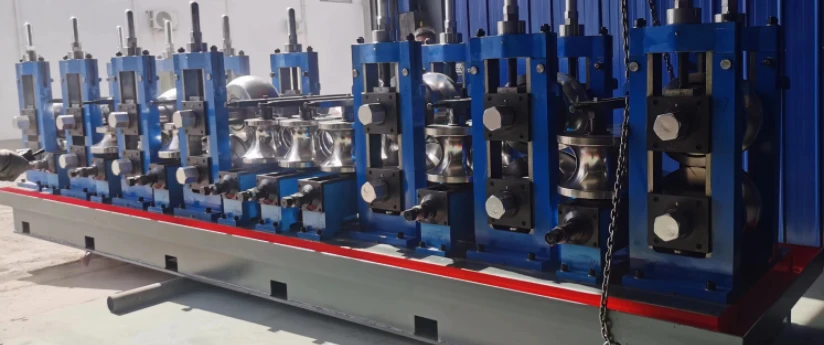Cost of Automatic Pipe Welding Machines in Today's Market
Understanding the Pricing of Automatic Pipe Welding Machines A Comprehensive Overview
Automatic pipe welding machines have revolutionized the way industries approach welding tasks. By enhancing productivity, ensuring consistency, and improving safety, these machines have become indispensable in sectors such as construction, shipbuilding, oil and gas, and many others. However, with a plethora of options available in the market, understanding the pricing of these machines can be quite complex. In this article, we will delve into the factors influencing the price of automatic pipe welding machines, what you can expect in terms of budget, and tips for making an informed purchase.
Factors Influencing Price
1. Type of Machine The price of an automatic pipe welding machine largely depends on its type and complexity. Basic models equipped with fundamental welding functionalities may start around $5,000 to $15,000. In contrast, high-end machines with advanced features, such as multi-process capabilities and intricate automation, can range from $20,000 to $100,000 or more.
2. Welding Technology Different welding technologies—such as TIG (Tungsten Inert Gas), MIG (Metal Inert Gas), and Submerged Arc Welding—carry different costs. For instance, machines using TIG welding technology generally come at a higher price point because they provide better precision and control over the welding process, making them suitable for thinner materials and high-quality welds.
3. Capacity and Size Larger machines capable of handling thicker pipes or larger diameters typically come with a higher price tag. For businesses dealing with heavy industries, investing in a robust machine may be necessary, thus increasing the budget requirement significantly.
4. Brand and Manufacturer Like any piece of equipment, the brand plays a crucial role in determining the price. Renowned manufacturers often charge a premium for their products due to their reputation for quality, reliability, and after-sales support. It is essential to research various brands to find a balance between quality and cost.
5. Features and Automation Levels Machines equipped with advanced features such as programmable logic controllers (PLC), digital displays, and enhanced safety systems tend to be more expensive. Automation levels also play a crucial role; fully automated machines that require minimal operator intervention are typically priced higher than semi-automatic counterparts.
6. After-sales Service and Support The availability of technical support, warranty, and the cost of spare parts can also influence the overall price. A higher initial investment in a machine with superior after-sales service can often lead to cost savings in the long run.
What to Expect in Terms of Budget
automatic pipe welding machine price

When considering an investment in an automatic pipe welding machine, it is essential to establish a realistic budget based on the factors outlined above
. Entry-level machines may be suitable for small workshops or light fabrication activities, while larger manufacturing operations may require a significant investment in higher-end machinery.Additionally, consider the total cost of ownership, including maintenance, training, and any necessary upgrades over time. It is not uncommon for businesses to invest an additional 20-30% of the machine's initial cost into these areas to ensure optimal performance and longevity.
Tips for Making an Informed Purchase
1. Assess Your Needs Before making a purchase, carefully assess your specific welding requirements, including the types of materials, pipe sizes, and the expected volume of work.
2. Research Manufacturers Take the time to research and compare different manufacturers and their offerings. Look for customer reviews, testimonials, and case studies to gauge the performance and reliability of the machines.
3. Look for Financing Options Many manufacturers offer financing options that can help spread the cost of the machine over time, making it more manageable for businesses.
4. Consult Experts Engage with industry experts or distributors who can provide insights into the best machines suitable for your needs and help you navigate the complexities of pricing.
5. Consider Future Needs Your purchase should align not just with current needs but also with future growth potential. Investing in a machine that can adapt to changing demands may provide better long-term value.
In conclusion, the pricing of automatic pipe welding machines is influenced by various factors, including the type of machine, features, brand reputation, and after-sales support. By understanding these elements and carefully evaluating your needs, you can make a well-informed investment that enhances productivity and efficiency in your welding operations.
-
High Frequency Straight Seam Welded Pipe Production Line-BzZhou Xinghua Machinery Equipment Manufacturing Co., LTD.|line pipe steel&welded gas pipeNewsJul.30,2025
-
High Frequency Straight Seam Welded Pipe Production Line-BzZhou Xinghua Machinery Equipment Manufacturing Co., LTD.|High Precision&Automated SolutionsNewsJul.30,2025
-
High Frequency Straight Seam Welded Pipe Production Line - BzZhou Xinghua Machinery Equipment Manufacturing Co., Ltd.NewsJul.30,2025
-
High Frequency Straight Seam Welded Pipe Production Line-BzZhou Xinghua Machinery Equipment Manufacturing Co., LTD.|Precision Welding, High EfficiencyNewsJul.30,2025
-
High Frequency Straight Seam Welded Pipe Production Line|BzZhou Xinghua|Precision Welding&EfficiencyNewsJul.30,2025
-
High Frequency Straight Seam Welded Pipe Production Line - BzZhou Xinghua|Precision Engineering&EfficiencyNewsJul.30,2025


